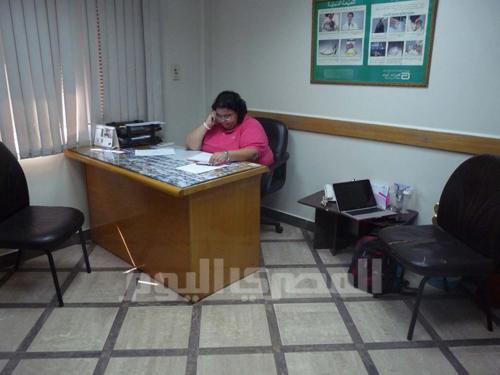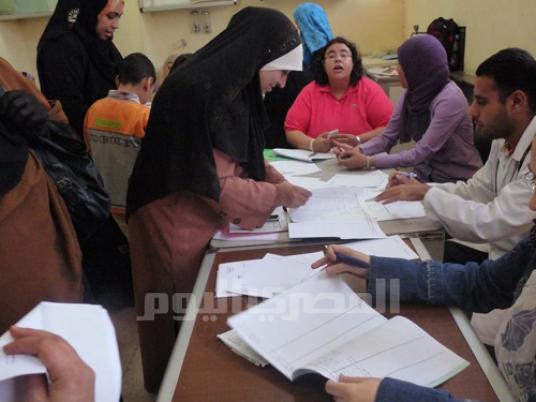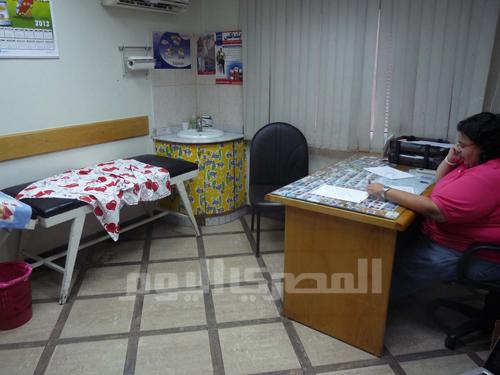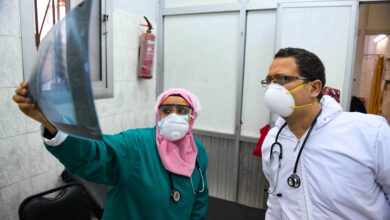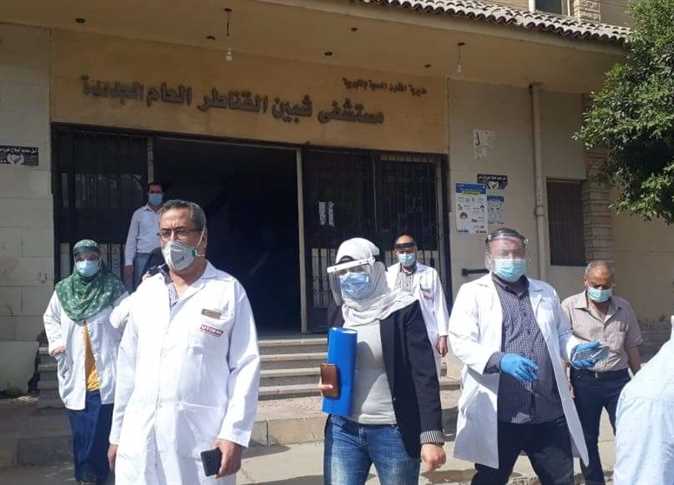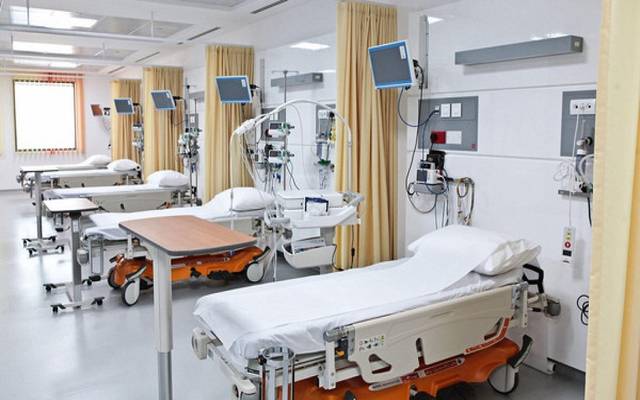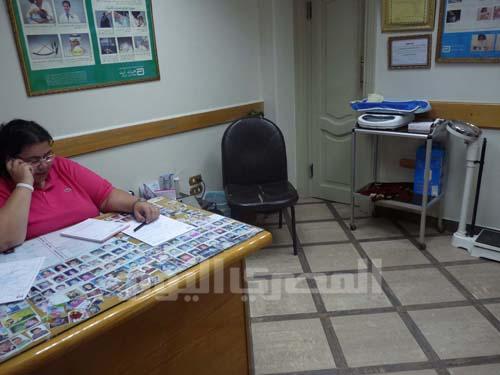
Egypt is a massive living organism — a web of ticking clocks, each set to a slightly different millisecond. With approximately 80 million in the country, 18 million of whom are woven into the streets and buildings of Cairo, the traffic of the city may crawl but many would say it is only by the will of God that it continues to flow at all. People are everywhere — driving, jumping off buses, walking, bicycling … ticking minute by minute through the days and nights of the city. Doctors, valets, belly dancers and beggars … Cairo keeps 18 million cogs in one of the world’s busiest wheels. This series takes a magnifying glass to one person, a representative of a job that keeps the city ticking — an eye-level shot that takes you through a day in the life of a cog in the wheel of Cairo. —Nevine El Shabrawy
“I will apply, for the benefit of the sick, all measures [that] are required, avoiding those twin traps of overtreatment and therapeutic nihilism. I will remember that there is art to medicine as well as science, and that warmth, sympathy and understanding may outweigh the surgeon’s knife or the chemist’s drug.”
This is part of the Hippocratic Oath, which Yasmin Galal recited with her graduating class of 2002 from Ain Shams University’s School of Medicine.
Ten years later, after diplomas and internships in Egypt, the US and the UK, her master’s degree and her journey to complete her medical doctorate, Galal’s days as a doctor fulfill that oath.
I met with Galal at 9:30 am under her home in the Sheraton area in Heliopolis to start her busiest day of the week. The first station is Al-Demerdash Teaching Hospital, where Galal is completing her doctoral dissertation. A pediatric neurologist, Galal has a very specialized profession. Sunday and Wednesday are the neurology days at Al-Demerdash. Galal follows up with patients who are part of her dissertation. She says they come by monthly, mainly to receive medicine, if it is available.
A lack of funds is usually an issue at this government-run teaching hospital. Galal says the patients that come are not emergency patients. They are mostly follow-ups coming to touch base on their cases. Galal deals with patients who have a chronic condition — her focus is on epilepsy and a possible treatment for more severe cases.
When she arrives at the hospital doors a little after 10 am, a man is yelling and a group is gathered around him. Galal says that is a normal sight, especially at the children’s hospital.
“Most of the time it’s about a patient who needs to be admitted but is not finding room,” she says.
A few buildings down, we turn left onto a sandy path with unpainted brick buildings with broken windows. A building on the left leads to the outpatient clinics. Three flights up is the neurology section. In the waiting area, we push our way through throngs of people waiting for their turn to enter the pediatric neurology room. Am Nabil is guarding the door to make sure the clinic inside remains calm.
Galal grabs the first seat she finds and starts looking at the first file. Out of 15 patients in the course of one hour and a half, only three children come with their parents. The rest are parents with files coming to collect the medicine for their children.
After three patients, Galal moves to a more comfortable seat. As she was talking to her second patient, two more were hovering over her shoulder, one with her hand rested on the doctor’s shoulder.
“People in Egypt are just not used to personal space and I don’t like to hurt their feelings by saying anything, so I usually choose a chair against the wall to avoid that,” she says.
Galal talks to her patients quietly in a soothing voice amid loud shouts coming through the door after a rumor goes around that the medicine has arrived. Women demand that they be granted entry to receive the medicine.
However, in general the mood is calm. Patients come in smiling and doctors joke with each other and make plans for later. Galal’s colleague and friend says, “Today is a great day.” With 72 patients to get through in an hour and a half, the doctors seem relaxed. Calling Am Nabil — who barely hears them over the noise level — to let the patients in, they joke about installing a number system like the ones they find in a bank. They do this while they each pull out money from their pockets to give to patients so they can buy tickets from the reception to receive their medicine.
“You learn, throughout the years to stop giving too much of your own money, sometimes we leave with not a pound in our pockets,” she says.
The doctors in the room rely strongly on a mother’s description.
“We ask specific questions and look at the child. If what the mother is saying matches what we see, we have to make a judgment as to whether they need the medicine. If there is a 1 percent chance that the patient does need medicine, we give it to them,” Galal says.
The quiet side of Galal changes when one mother walks in and, after being given her prescription, keeps begging for more. Galal tells her she can’t give her more, and that she has enough for the month. After the woman persists, Galal curtly tells her, “I will not give you more.”
She explains that some patients are known for trying to swindle more than they need with the excuse of not wanting to come in the next month. Giving more medicine to one patient means less for other patients. She says this specific medicine is considered a narcotic. The doctors must deal with the potential that patients might sell the drugs or use them illegally instead of giving it to the child.
“If mothers do not know the schedule in which the child takes the medicine or mess up, it is usually a giveaway that they are not using it as they should,” Galal says.
By 12:30 pm, Galal leaves for her second job of the day, working at the clinic in Shubra’s Al-Araby Hospital. On the way there Galal talks about her second passion: politics.
“Sometimes I wish I could ask the patients in Al-Demerdash who they will vote for in the presidential elections,” she says. Galal is a strong supporter of Abdel Moneim Abouel Fotouh.
Arriving in Shubra at 1:15 pm, she does not find a parking spot and is forced to double park. Galal then stops at the small snack shop in front of the hospital to buy her first meal of the day, which consists of Boreo cookies and Chocolate Mixy. Walking into the clinic she smiles at her first patient, a nurse and her two sons. They talk and Galal, in the comfort of an air-conditioned office, describes in detail the patient's medicine and X-rays. When this patient leaves it is 2 pm, and as she reaches out for her snack, the second patient walks in. This one, a quiet first-time mother with her 11-month-old son is anxious even though Galal reassures her there is nothing to worry about.
By 2:30 pm the patient leaves. Galal calls a patient who was supposed to come but her phone is off. She waits for 15 minutes and goes to see her friend in the next room. Her friend is occupied with a patient, so Galal decides to call it a day by 2:50. She starts her hour-long journey back home for an afternoon nap and lunch before she prepares for her evening trip to her personal clinic in Heliopolis.
On all three car rides, Galal is calm when stuck in traffic.
“I don’t mind driving, although sometimes it does get tiring,” she says.
On average Galal sees the most patients in Al-Demerdash. She gets a few patients in Shubra but can go for a whole week without a single patient in her personal clinic.
“At my age of 34, I don’t expect to have a busy clinic. However, I opened my clinic early to get a head start in my career,” she says. "We meet at 8 pm at her clinic on Al-Khalifa Al-Mamoun Street. The roads are so crowded that we end up arriving later than we should."
Galal decorated her clinic to create a child-friendly, peaceful atmosphere. With toys in the waiting room, her office has Harry Potter curtains and books on the shelf. Baby pictures of her and her friends hang on the wall and flip books sit on the side to occupy the patients as the doctor talks with their parents.
Galal has a book open on her desk with a highlighter — she uses the time in her clinic to study. Although not having any of personal patients may be discouraging sometimes, Galal says she feels at peace at the clinic and likes to go there anyway.
“The most intense period of the day is at Al-Demerdash,” says Galal, “but even when I finish my dissertation, I will probably continue going there. It is my way of giving back to society.”
Galal, who lives with her father and is financially supported by him, says the best month of work would give her a maximum of LE500.

